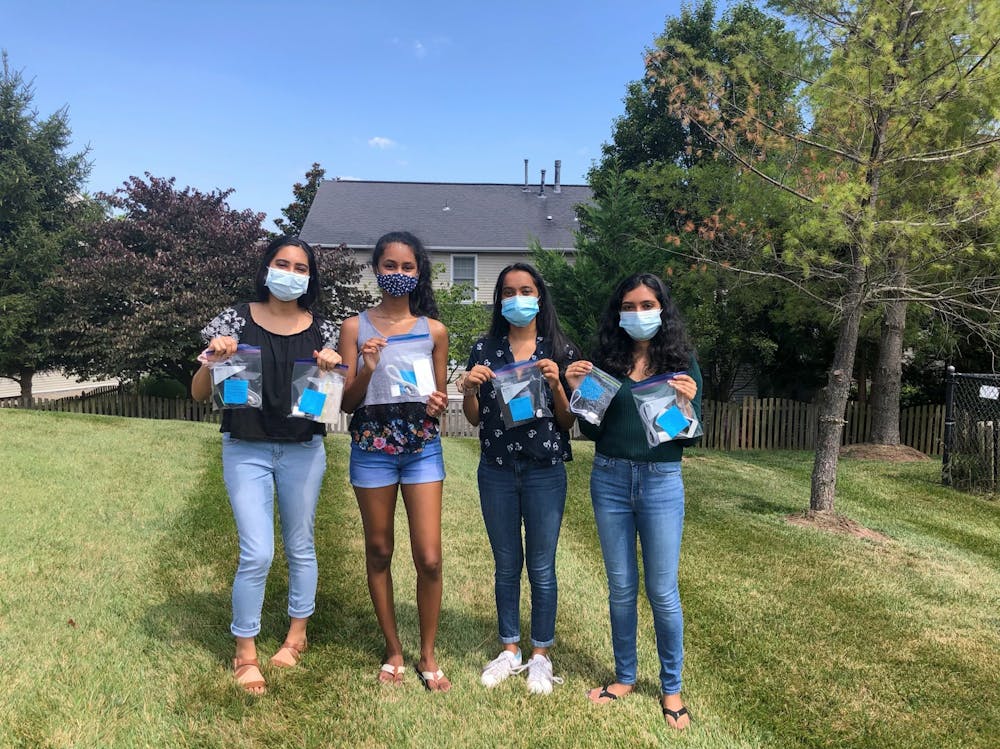As coronavirus sweeps the United States, the infectious disease presents a dual risk for many Americans. While COVID-19 in and of itself causes painful symptoms and forces people to practice social distancing, chronic conditions heighten the dangers of the disease, especially for senior citizens over age 65.
Chronic conditions such as heart disease, cancer and diabetes plague senior citizens in particular, with the National Council on Aging citing that approximately 80 percent of older adults suffer from one or more chronic diseases. These prolonged illnesses leave older adults particularly vulnerable to COVID-19.
“As we have seen, the virus hits nursing homes and senior living facilities hard,” said Rachana Subbanna, a rising third-year College student. “It’s horrible to think that people there cannot see anyone, not even their families or doctors, without being at risk.”
In order to receive medical attention, millions of Americans with chronic diseases may turn to telemedicine for doctor’s appointments, but a lack of access to electronic devices prevents many people from doing so. Additionally, as the fear of exposure to coronavirus forces the older and chronically ill to shelter at home, many people cannot interact in person with family members or friends, and without a phone, tablet, or laptop, keeping in regular contact with loved ones becomes much more challenging.
To bridge this communication gap, four students — three at Yale University and one high schooler — founded the nonprofit TeleHealth Access for Seniors in March 2020. Volunteers with TeleHealth Access for Seniors gather devices family, friends, businesses and schools no longer use and donate them to local hospitals and clinics for distribution to senior citizens. Rising third-year College students Rachana Subbanna, Anika Iyer and Tanvi Nallanagula joined the Virginia team in mid-June.
“Our three main goals are prevention, connection and education,” Iyer said. “We want to prevent complications from chronic conditions or exposure to COVID-19 by enabling senior citizens to access devices and telehealth resources. We also want to help seniors connect with family and friends virtually as they practice social distancing, as well as offer educational tools as they learn to use their devices.”
The University team partnered with the Charlottesville Free Clinic and, after three weeks of seeking donations, provided approximately 25 devices to under-insured and uninsured older adults in the Charlottesville community.
“We first emailed close friends and family asking for old devices and funds, but we have started reaching out to bigger businesses and alumni, too,” Subbanna said. “Overall, people have been fairly receptive when we contact them, and even if they cannot offer us a device, $10 and spreading the word about our work go a long way, too.”
Since its inception, TeleHealth Access for Seniors has expanded its operations to 26 states in the U.S, with over 200 college and high school student volunteers collecting nearly 1,000 camera-enabled devices to date.
The end-to-end process from accepting donated devices to putting them in the hands of seniors and under-served populations involves several steps.
Donors first complete a form on TeleHealth Access for Seniors website to notify volunteers of their interest in providing devices. Volunteers confirm the donation and either accept a package with the devices in the mail or pick them up at an agreed upon location. After sanitizing donations in compliance with Centers for Disease Control and Prevention guidelines, volunteers then gather the devices and ship or deliver the batch to a designated clinic.
However, TeleHealth Access for Seniors’ efforts does not end there.
Recognizing senior citizens may need help with navigating a new cell phone, tablet or computer, the nonprofit provides printable instructions and virtual technical support on the TeleHealth Access for Seniors website for setting up devices, connecting to wifi, accessing medical records online and using FaceTime, Zoom and Skype for telehealth appointments and calls with relatives.
“This has been a great initiative because it is easy to volunteer remotely through different fundraising opportunities and signing up for tech support shifts,” Subbanna said. “When the pandemic started, I was at home feeling helpless since I am used to being involved in research and volunteering. TeleHealth Access for Seniors has allowed me to still volunteer and serve the healthcare field, but without going places and possibly exposing people to the virus.”
With a resurgence of coronavirus cases and deaths across the U.S., the pandemic continues to influence the everyday patterns of the nation and its people, particularly senior citizens and immunocompromised individuals.
Many public health experts and local and state officials advocate for stricter social distancing guidelines and preventative measures in their regions, including universal mask mandates and stricter restaurant and bar regulations, as states such as Virginia have implemented. Yet until these measures are implemented and people start to act in a more cautious manner in their everyday lives, Americans in high-risk categories will likely continue to rely on alternative methods of communicating with physicians, family members and friends as they stay isolated.
As a result, Iyer noted that these realities indicate that the work of TeleHealth Access for Seniors is only beginning, and in the coming months, the need for their services will only increase.
“As the main founders of TeleHealth Access for Seniors told us, the pandemic is not going away anytime soon,” Iyer said. “So we will just keep expanding and recruiting more volunteers in more states, because even a little bit of work — preventing a now potentially life-threatening trip to the doctor’s office — can make a difference in the lives of older Americans suffering from chronic conditions.”
To give a device, donate or volunteer, visit: https://www.telehealthforseniors.org/support-us.







